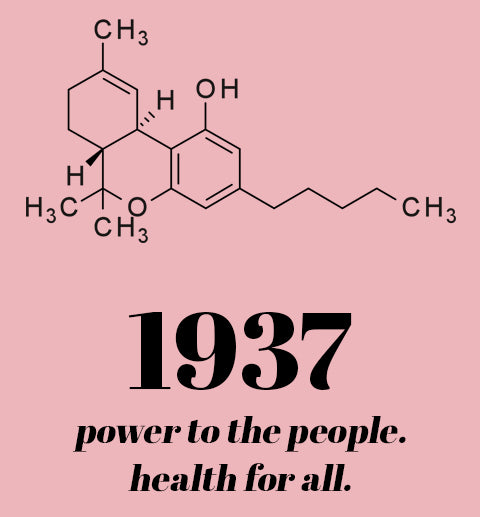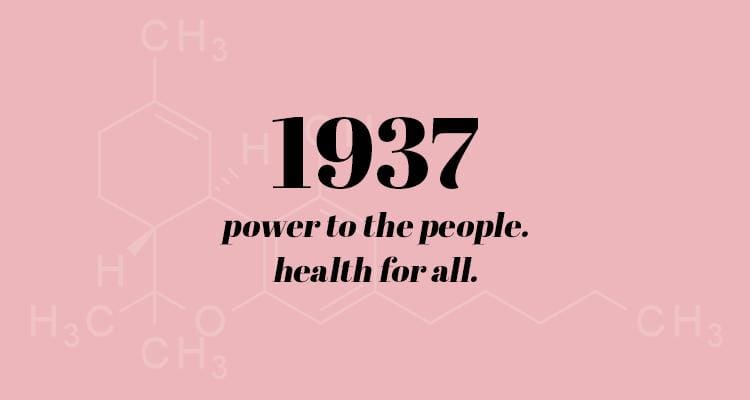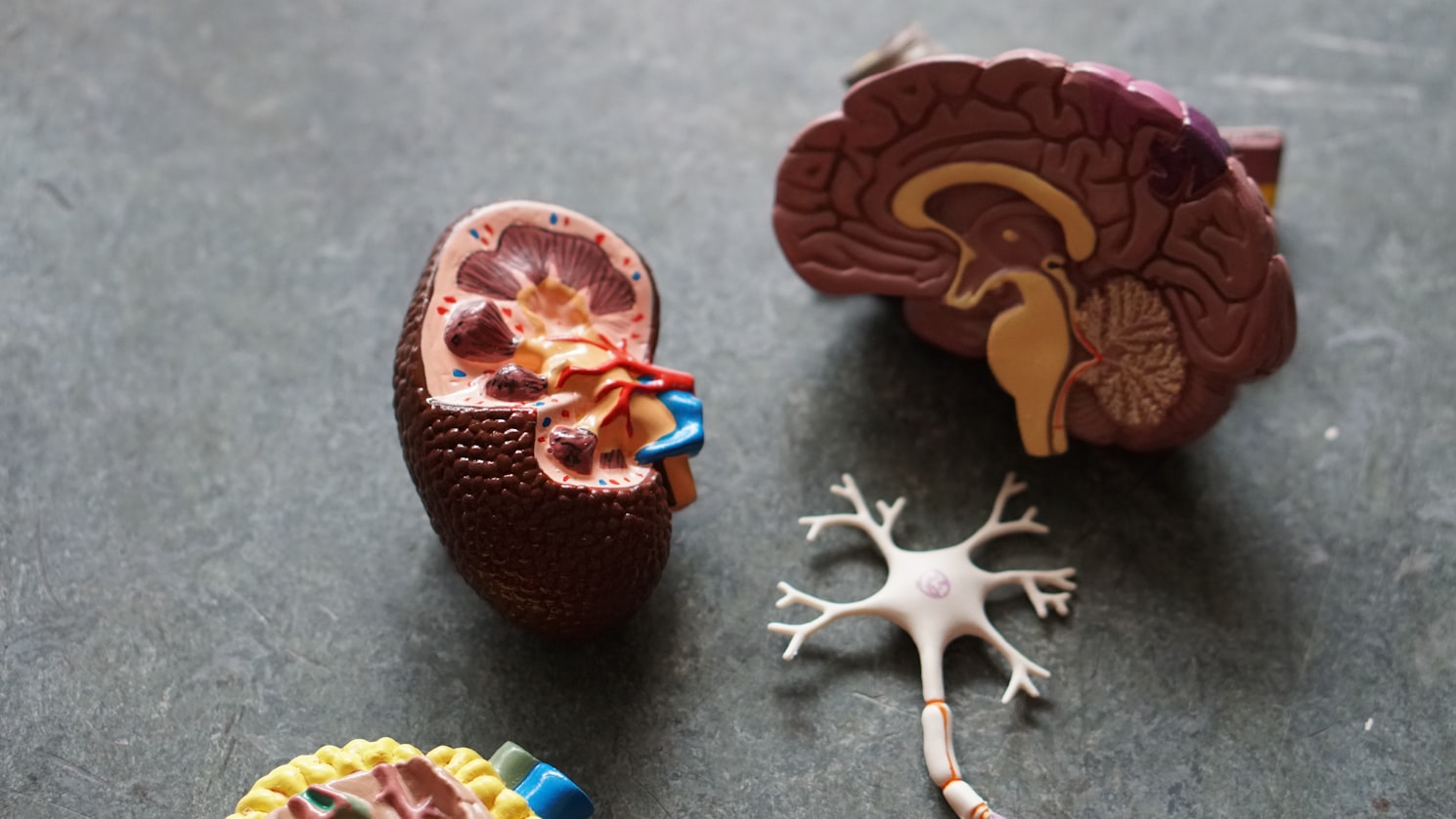The Endocannabinoid System: Mind & Body Medicine

Your mind and body can influence each other in some pretty amazing ways, and the Endocannabinoid System is just one of the ways they’re connected.
It’s a common enough experience — You go through some kind of emotional trauma and then for the next several months you have a harder time fighting off simple colds. Or maybe it happened the other way around. Maybe you experienced an injury and then had intense mood swings afterward. When this happens, many people assume it’s “all in your head.” Well, that’s not exactly wrong...but it’s not the whole picture.
Our bodies and minds are connected in ways we’re only just now beginning to understand. Eastern medicine has long accepted that your physical and emotional states can influence each other, but Western medicine is still playing catch-up. However, with the discovery of the endocannabinoid system (ECS), we’re quickly gaining ground.
So when you see products with claims like “Improves Mind and Body Wellness” or “Mood Elevating” are they for real? Let’s find out!
What Do We Mean By “Mind” and “Body?”
First, we should make sure we’re all on the same page when it comes to a few terms.
Hopefully, it’s pretty obvious that when we say “body” we’re referring to your physical body. That includes everything INSIDE your body too. So, that means your organs, various bodily systems, nerves, etc. If it’s a physical part of your anatomy, then that’s what the word “body” is referring to.
The word “mind” is a little more complicated. You might assume that we mean your “brain,” but that’s still part of your physical body. We’re referring to your mental state. That might include your emotions, thoughts, attitudes, mood, etc. So, in this instance, the brain is really just the hardware that facilitates your mental state.
The University of Minnesota put it beautifully when they said, “Mental states can be fully conscious or unconscious. We can have emotional reactions to situations without being aware of why we are reacting. Each mental state has a physiological state associated with it—a positive or negative effect felt in your body. For example, the mental state of anxiety causes you to produce stress hormones.”
That’s just one example of the many ways your mind and body can influence each other. Let’s look at some more.
How Are the Mind and the Body Connected?
As an example, imagine that you’re constantly stressed because of your job, finances, or maybe a relationship issue. That emotional stress can lead to tense muscles, headaches, and even gastrointestinal problems. Eventually, it may also lead to high blood pressure which can result in heart problems. All of that just from stress.
But it works the other way around too. When you’re dealing with chronic pain or some kind of underlying health problem, it can affect your emotions. You may become anxious or depressed, which could then impact how well you manage your illness.
Basically, any kind of pain and suffering, regardless of whether it’s in your mind or in your body, can be detrimental to your overall health. By that logic though, it makes sense that having a positive mind might have a positive impact on your health. The Mayo Clinic even recognizes that laughter can increase oxygen intake, relieve neurological stress responses, stimulate circulation, and relieve muscle tension.
Let’s look at a few specific examples of how your mind and body work together.
The Limbic System
If we’re going to talk about the mind/body connection, it makes the most sense to start with the limbic system. This system is a group of structures in the brain that play a big role in our emotions. Those structures regulate the mental faculties needed for survival such as motivation, reward, learning, memory, fight-or-flight, hunger, thirst, and the production of certain hormones that regulate the autonomic nervous system.
The two most memorable parts of the limbic system are the hippocampus and the amygdala. The former aids in memory, spatial reasoning, learning, and long-term information while the latter helps our bodies process emotions. Together they help our brains connect emotional meaning to specific memories. Overall, the limbic system controls our conscious and unconscious functions by acting as the bridge between psychological and physiological experiences.
As an example, think of the last time you were really scared. Your heart rate may have increased, your breathing might have sped up, and you might have even started sweating. Your emotions triggered the limbic system to release a flood of hormones specific to the fight-or-flight response (adrenaline, cortisol, etc.).
Basically, the idea that your mind and body are two completely separate entities is outdated. But let’s keep going...
The Immune System
Most people assume that the immune system is simply in charge of helping to fight off illness. While that’s true, the immune system is far more complex than that and can easily be influenced by your mental state. In fact, chronic stress can be detrimental to your immune system.
Over time chronic stress causes extreme fatigue to your immune system. There are several studies that show how stress actually diminishes white blood cell function, and an article published in Social Work in Health Care even says, “vaccination is less effective in those who are stressed and wounds heal less readily in those who are stressed.”
This is particularly relevant today because the majority of us are dealing with more stress than usual. It’s also painfully ironic that most of us are damaging our immune systems because we’re so anxious about becoming ill.
If you want to learn more about managing coronavirus-related stress, check out Get Through Quarantine Stress Naturally with CBD.
There’s one system in particular that may hold the key to maintaining the balance between the body and the mind: the endocannabinoid system (ECS).
The Endocannabinoid System
The ECS is a vast communication system that has two main purposes. The first is to help maintain balance in the various other bodily systems. The second is to fine-tune the communication between nerves so they can communicate as efficiently as possible. And because the ECS has receptors throughout the body, it’s able to influence a LOT. To save time, let’s just look at how the ECS influences the immune system and the Limbic System.
Several studies have shown that the ECS is involved in immunoregulation, meaning one of its tasks is to support the immune system so that it functions more efficiently. When it comes to the Limbic System, it’s thought that the ECS improves how different neurons communicate with each other (aka it improves synaptic plasticity).
We need more research to determine exactly how the ECS improves synaptic plasticity, but we do know that the ECS influences:
- Your sleep/wake cycle
- Mood
- Panic responses
- Inflammation
- Hunger and appetite
All of those items fall under the responsibility of either the Limbic System or the Immune System. Regardless of whether the ECS is directly affecting those systems or if it’s just treating symptoms, it still means the ECS is working to provide relief for both the body and the mind.
Healing Plants Help Maintain Mind and Body Balance
So, when you see products that claim to improve your mood and your physical health, are they for real? Well, that actually depends on YOU. Let us explain...
There are plants, herbs, and minerals that can provide support for different parts of your anatomy. For example, capsaicin (the chemical responsible for peppers being spicy) can increase blood flow and metabolism. Ginseng has also been used for thousands of years for its ability to increase energy and elevate mood.
The vast world of adaptogens includes a wide variety of plants and mushrooms that are meant to promote balance much the same way that the ECS does. Terpenes, the organic hydrocarbons found in most plants that make up aromatic compounds, can act as sedatives, stimulants, or even antioxidants and antibacterials.
And don’t worry, we didn’t forget about Hemp and CBD. The hemp plant is full of cannabinoids, specifically CBD (cannabidiol). This compound is similar enough to your natural endocannabinoids, that taking CBD is like giving your ECS a whole team of helpers. In the simplest terms, CBD makes it easier for your ECS to do its job.
But if there are all these amazing tools to help you feel better...why are so many of us still struggling?
Because we’re all different. No one has the same physiology as anyone else. A product that might work wonders for you might not work all that great for your friend. Plus, remember that this is about finding a balance for your body and mind. If you’re experiencing physical ailments because of emotional trauma, all the herbs in the world won’t help you the same way talking to a mental health professional will.
When you finally start supporting your mind the same way you support your body, amazing things happen. That might mean meditating, talking to a counselor, or even just going on a peaceful walk every day to gather your thoughts. Your mental health is just as important as your physical health, and now we know that the two are intimately connected.
Practice Mind & Body Medicine By Paying Attention
It may sound silly, but the best way to practice mind & body medicine is to pay attention to the way you feel. Start noticing how you physically feel and how you feel emotionally. Health and happiness are the natural state, so if you find yourself constantly dealing with aches or anxiety, then something is off.
For many of us, our lives are so hectic we don’t know something is wrong until it’s REALLY wrong. So, we challenge you to pay attention to your needs. Maybe that means taking a five-minute break in the afternoon to stare out the window and practice some breathing techniques. Maybe it just means taking a new supplement to help your ECS function better. Whatever you do, just pay attention to your mind and your body and then give it whatever it needs (even if it just needs a nap).
Follow us on Instagram for all the latest updates, and don’t forget to check out our store for products that may help you find mind and body balance.

Hannah Walker is a mostly-retired University English instructor who spends her time freelance copywriting. When not doing that, she’s writing articles related to CBD, skincare, and/or media. With an MA in English-Creative Writing she’s probably working on a creative piece at this very moment. See more about Hannah’s work on her website or on Instagram.





